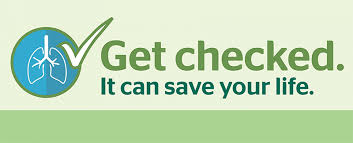
Public Health & Cancer Awareness
Each month, the UVM Cancer Center shares messages related to a cancer-specific health observance.
FEBRUARY: CANCER PREVENTION MONTH
Experts believe that up to 50% of cancers can be prevented. That’s because certain daily habits can make us more likely to get cancer. Changing these habits may help prevent cancer.
5 lifestyle changes that may reduce your cancer risk:
- Quit smoking (802quits.org is Vermont's tobacco cessation resource. ).
- Make healthy food choices.
- Get regular checkups & screenings.
- Stay active.
- Protect your skin with sun safe behaviors.
LEARN MORE
MARCH: COLORECTAL CANCER AWARENESS MONTH
March is colorectal cancer awareness month. With regular screening, almost all colorectal cancer can be prevented. If you are 45 or older, please talk to your doctor about screening options.
VIEW RESOURCES
MAY: SKIN CANCER AWARENESS MONTH
Did you know that Vermont has the second highest incident rate of melanoma in the U.S.?
May is skin cancer awareness month and by limiting sun exposure you can reduce your skin cancer risk.
Three Prevention Tips:
- Cover up. Wear wide-brimmed hats, sun-protective clothing and sunglasses.
- Stay indoors between 10 a.m. and 2 p.m. or seek shade.
- Wear sunscreen, with a sun protection factor (SPF) of 30 or higher.
Early detection promotes successful treatment, talk to your doctor about your screening options.
Summer Safety Tips: Find some simple health and safety tips for summertime activities.
Something New Under The Sun: Learn about the signs of melanoma.
9 Things I'd Never Do As A Dermatologist: Summer's coming. How many of these ski 'don'ts' do you do?
SEPTEMBER: PROSTATE CANCER AWARENESS MONTH
Prostate cancer is the second most common type of cancer. UVM Cancer Center clinical member, Shahid Ahmed, MD, MBBS, a medical oncologist specializes in cancers of the urinary system and the reproductive organs in men and provides an overview of diagnosis and tips to manage treatment side effects in this Healthsource article.
READ ARTICLE
OCTOBER: BREAST CANCER AWARENESS MONTH
25th Annual Women's Health and Cancer Conference: View recordings of presentations and panels about surgical options, survivorship, integrative care, palliative care, and breakthrough advances in the research.
Breast Cancer Portfolio: Learn more about the UVM Cancer Center's research, education, community outreach, and clinical care related to breast cancer.
Clinical Trials: See what clinical trials are being offered related to breast cancer.
Genetic Testing for Cancer and Risk Assessment: Learn about the team of clinicians who provide genetic screening and risk assessment.
Screening Guidelines: The American Cancer Society recommends these screening guidelines.
Breast Cancer Screening: Reach out to your primary care provider or the Breast Care Center if you are due for a screening.
Support Services: There are many resources for patients in treatment or patients who have completed their treatment, including support groups and the popular Steps to Wellness class.
NOVEMBER: LUNG CANCER AWARENESS MONTH
Lung Cancer Public Health Campaign. The UVM Cancer Center teamed up with Dartmouth Cancer Center and Vermonters Taking Action Against Cancer to encourage more Vermonters to get screened for lung cancer. When detected early, local tumors can be removed which increases the patient's survival rate from 24% to 60%.
Learn more about:
- Guidelines
- Screening locations in Vermont
- Eligibility requirements
VIEW CAMPAIGN
Lung Cancer Research. Learn more about the Cunniff lab's promising new therapy for mesothelioma and metastatic cancer, which is currently a Phase I clinical trial.
Clinical Trials: See what clinical trials are being offered related to lung cancer.